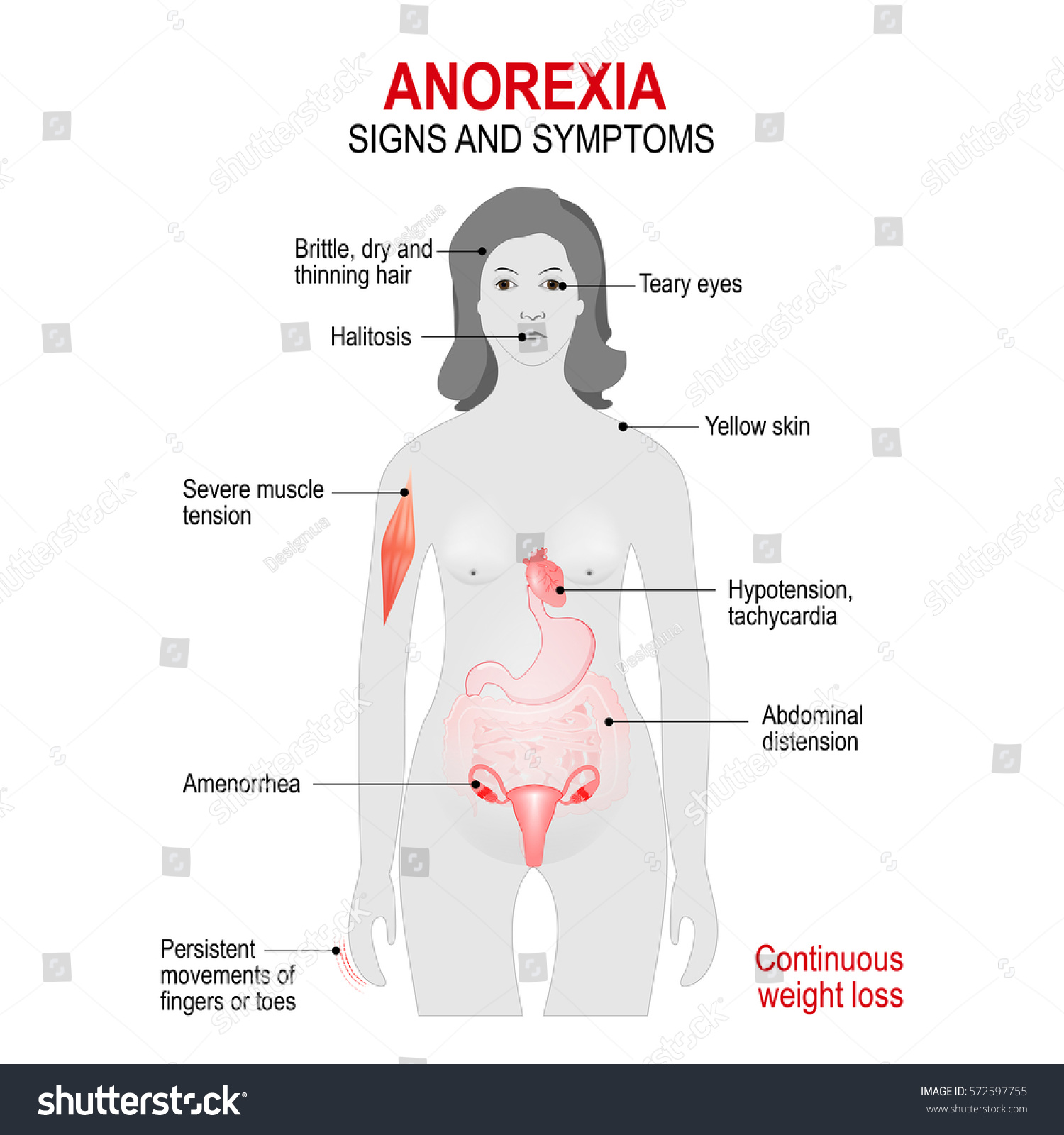Using STC30 to cure Anorexia Nervosa
Anorexia often simply called anorexia — is an eating disorder characterized by an abnormally low body weight, an intense fear of gaining weight and a distorted perception of weight. People with anorexia place a high value on controlling their weight and shape, using extreme efforts that tend to significantly interfere with their lives. To prevent weight gain or to continue losing weight, people with anorexia usually severely restrict the amount of food they eat. They may control calorie intake by vomiting after eating or by misusing laxatives, diet aids, diuretics or enemas. They may also try to lose weight by exercising excessively. No matter how much weight is lost, the person continues to fear weight gain.
Anorexia Nervosa

Anorexia isn't really about food. It's an extremely unhealthy and sometimes life-threatening way to try to cope with emotional problems. When you have anorexia, you often equate thinness with self-worth.
Anorexia, like other eating disorders, can take over your life and can be very difficult to overcome. But with treatment, you can gain a better sense of who you are, return to healthier eating habits and reverse some of anorexia's serious complications.
Physical symptoms
Physical signs and symptoms of anorexia may include:Extreme weight loss or not making expected developmental weight gains
Thin appearance
Abnormal blood counts
Fatigue
Insomnia
Dizziness or fainting
Bluish discoloration of the fingers
Hair that thins, breaks or falls out
Soft, downy hair covering the body
Absence of menstruation
Constipation and abdominal pain
Dry or yellowish skin
Intolerance of cold
Irregular heart rhythms
Low blood pressure
Dehydration
Swelling of arms or legs
Eroded teeth and calluses on the knuckles from induced vomiting
Emotional and behavioral symptoms
Behavioral symptoms of anorexia may include attempts to lose weight by:Severely restricting food intake through dieting or fasting
Exercising excessively
Bingeing and self-induced vomiting to get rid of food, which may include the use of laxatives, enemas, diet aids or herbal products
Emotional and behavioral signs and symptoms may include:
Preoccupation with food, which sometimes includes cooking elaborate meals for others but not eating them
Frequently skipping meals or refusing to eat
Denial of hunger or making excuses for not eating
Eating only a few certain "safe" foods, usually those low in fat and calories
Adopting rigid meal or eating rituals, such as spitting food out after chewing
Not wanting to eat in public Lying about how much food has been eaten
Fear of gaining weight that may include repeated weighing or measuring the body
Frequent checking in the mirror for perceived flaws
Complaining about being fat or having parts of the body that are fat
Covering up in layers of clothing
Flat mood (lack of emotion)
Social withdrawal
Irritability
Insomnia
Reduced interest in sex
Causes
The exact cause of anorexia is unknown. As with many diseases, it's probably a combination of biological, psychological and environmental factors.Biological. Although it's not yet clear which genes are involved, there may be genetic changes that make some people at higher risk of developing anorexia. Some people may have a genetic tendency toward perfectionism, sensitivity and perseverance — all traits associated with anorexia is mostly
Psychological. Some people with anorexia may have obsessive-compulsive personality traits that make it easier to stick to strict diets and forgo food despite being hungry. They may have an extreme drive for perfectionism, which causes them to think they're never thin enough. And they may have high levels of anxiety and engage in restrictive eating to reduce it.
Environmental. Modern Western culture emphasizes thinness. Success and worth are often equated with being thin. Peer pressure may help fuel the desire to be thin, particularly among young girls.
Anorexia Nervosa is a serious health issue and can be life threatening hence the need to avoid it by all means Unfortunately most people with this condition are not aware of it. Hence it takes friends and family members to detect this condition in a person and help them.





Post a Comment